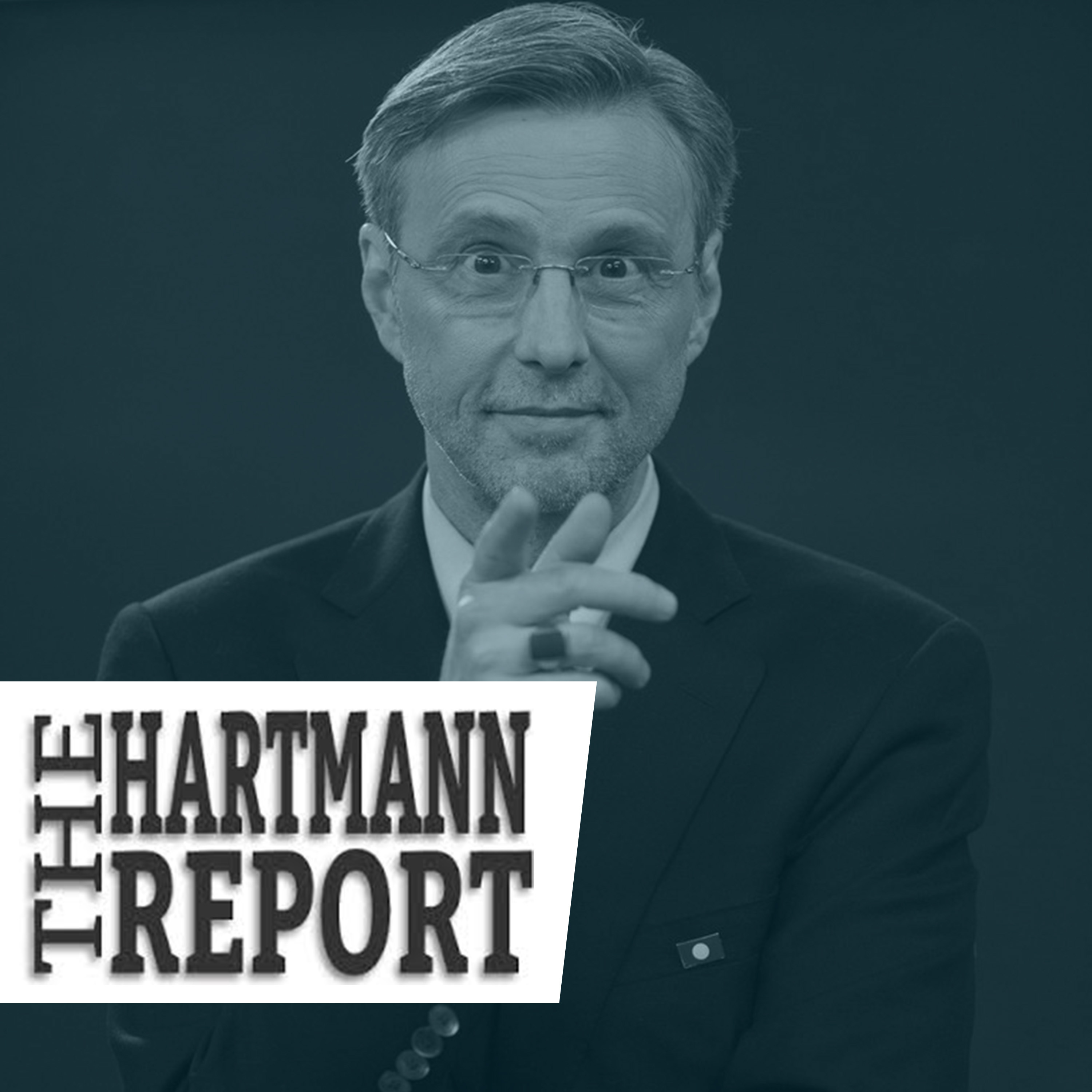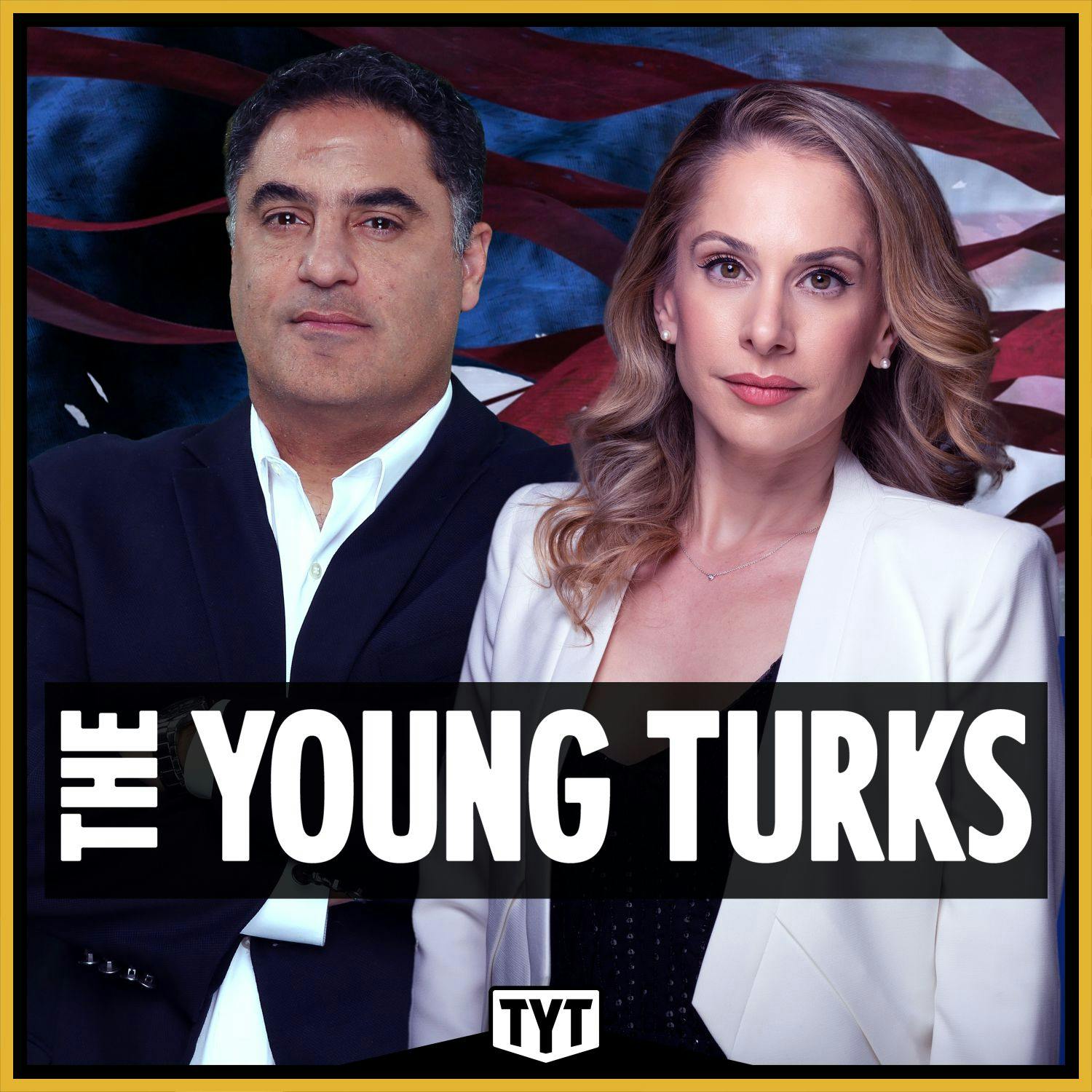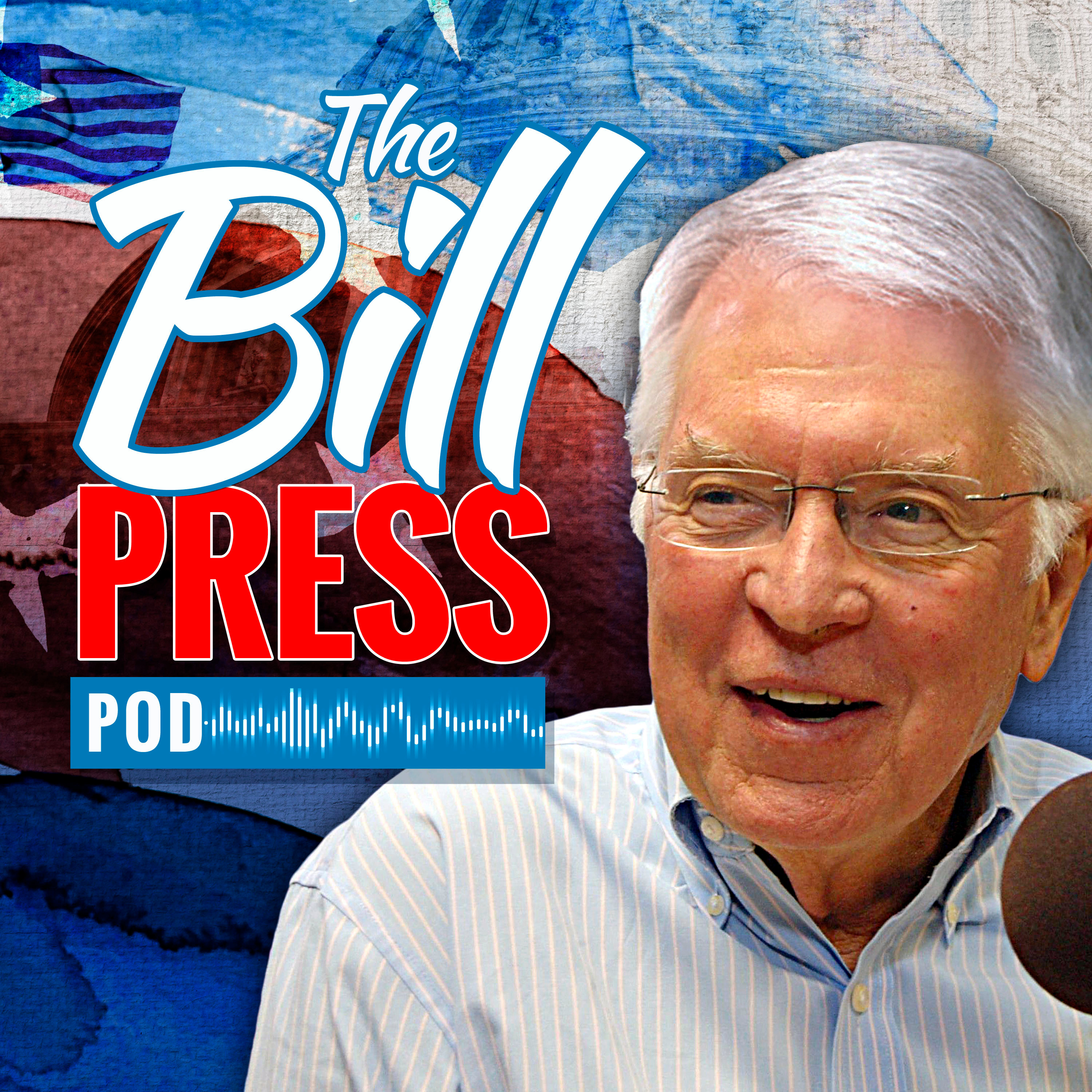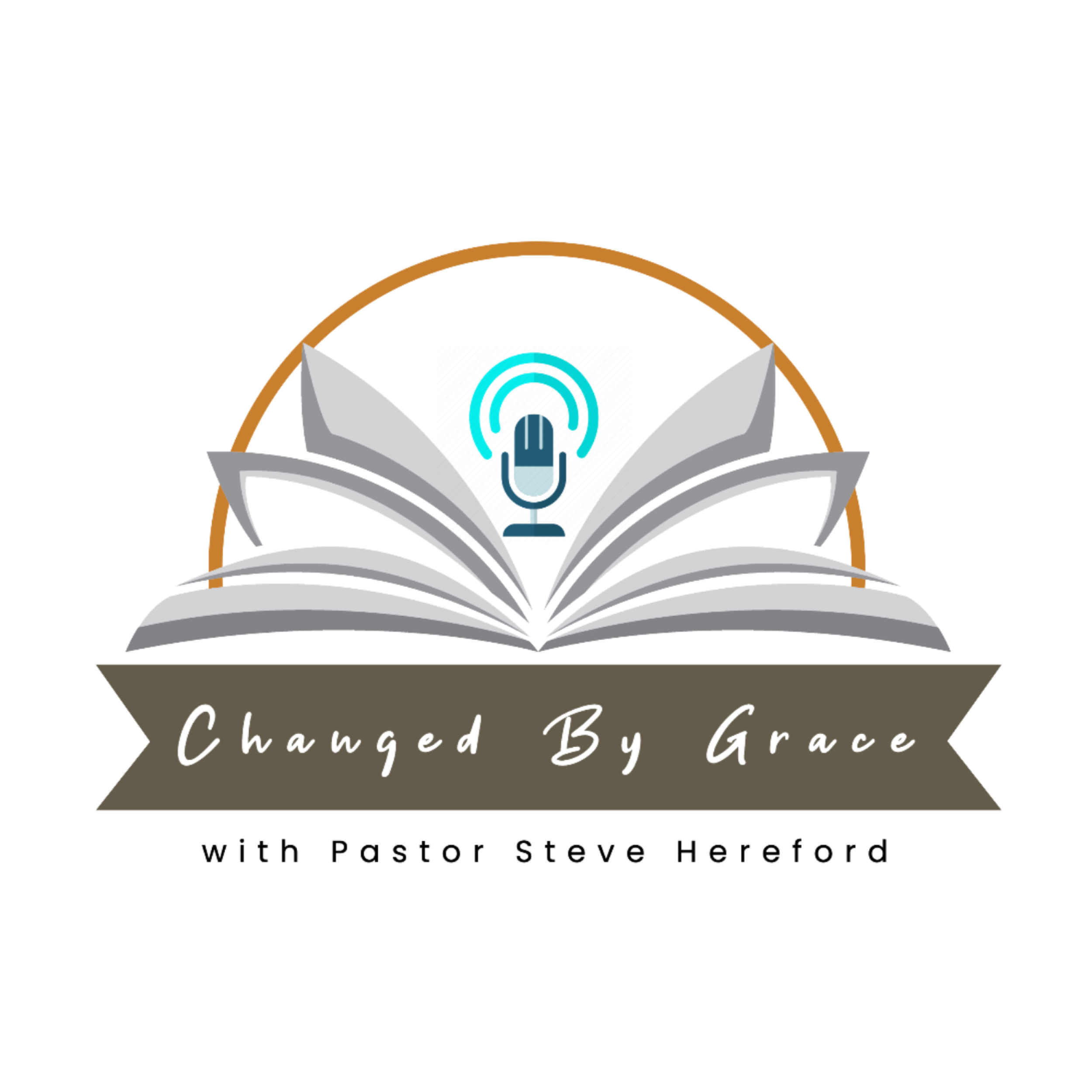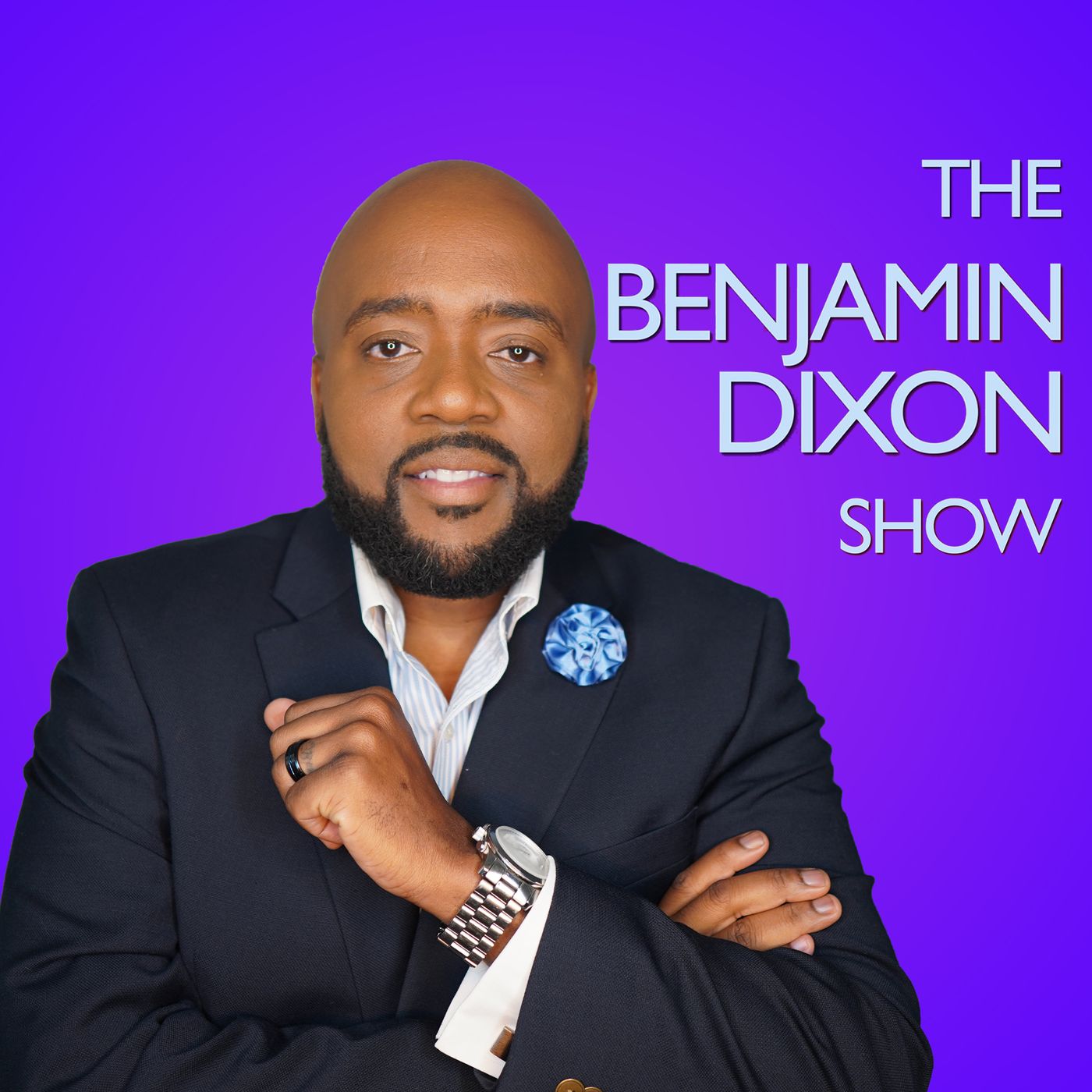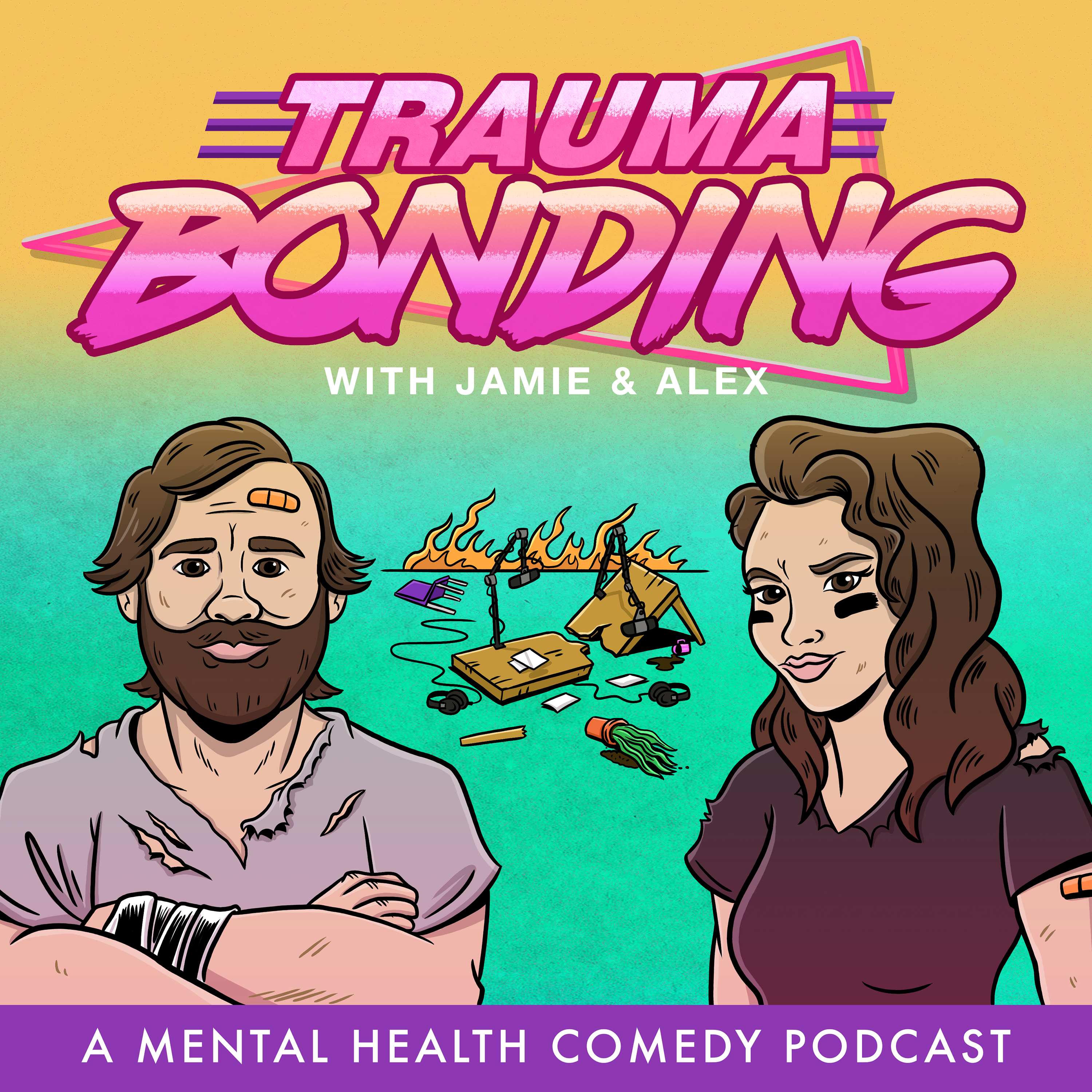
The Darrell McClain show
Independent media that won't reinforce tribalism. We have one Planet; nobody's leaving so let’s reason together!! Darrell McClain is a Military veteran with an abnormal interest in politics, economics, religion, philosophy, science, and literature. He's the author of Faith and the Ballot: A Christian's Guide to Voting, Unity, and Witness in Divided Times. He was born and raised in Jacksonville FL, and went to Edward H white High School,l where he wrestled under Coach Jermy Smith and The Late Brian Gilbert. He was a team wrestling captain, District champion, and an NHSCA All-American in freestyle Wrestling. He received a wrestling scholarship from Waldorf University in Forest City, Iowa. After a short period, he decided he no longer wanted to cut weight, effectively ending his college wrestling journey. Darrell McClain is an Ordained Pastor under the Universal Life Church and is still in good standing as well as a Minister for the American Marrige Ministries . He's a Believer in The Doctrines of Grace, Also Known as Calvinism. He joined the United States Navy in 2008 and was A Master at Arms (military police officer) He was awarded several awards while on active duty, including an expeditionary combat medal, a Global War on Terror medal, a National Defense Medal, a Korean Defense Medal, and multiple Navy achievement medals. While In the Navy, he was also the assistant wrestling coach at Robert E Lee High School. He's a Black Belt in Brazilian Jiu-Jitsu under 6th-degree black belt Gustavo Machado, Darrell Trains At Gustavo Machado Norfolk under the 4th-degree black belt, and Former Marine Professor Mark Sausser. He went to school for psychology at American Military University and for criminal justice at ECPI University.
The Darrell McClain show
At What Cost Order? The Politics, Protests, and Moral Contradictions of Immigration Enforcement
A dramatic constitutional showdown has erupted between President Donald Trump and California Governor Gavin Newsom over immigration enforcement, with profound implications for presidential power, states' rights, and the future of American federalism.
When protests against ICE raids in Los Angeles escalated, Trump made the extraordinary decision to deploy both National Guard troops and Marines to California without the governor's consent—the first such federal override of state authority since 1965. The move raises serious constitutional questions about the limits of presidential power and the applicability of the Posse Comitatus Act, which generally prohibits using military forces for domestic law enforcement.
Beyond the legal questions lies a fascinating political chess match between two ambitious leaders with diametrically opposed worldviews. Trump, recognizing immigration as a winning issue with much of the electorate, has positioned himself as the defender of law and order against what he characterizes as chaos permitted by Democratic leadership. Newsom, with potential presidential ambitions for 2028, must balance resistance to federal overreach with addressing legitimate public safety concerns.
The media coverage reveals our national divide. The New York Times characterizes the protests as "for the most part under control" before federal intervention, while the Wall Street Journal describes activists who "torched cars, looted businesses and occupied a major freeway." These contrasting narratives reflect the polarized lenses through which Americans view immigration policy and the proper balance of federal and state power.
Perhaps most telling is how both political parties invoke states' rights when convenient and champion federal authority when it serves their agenda. As history shows, when federal forces enter local communities against local wishes, conflict typically follows—raising the essential question of who ultimately decides how our communities are governed. Listen now to understand the deeper currents beneath this confrontation and what it means for America's constitutional future.
Welcome to the Darrell McLean Show. I'm your host, darrell McLean. Independent media won't reinforce tribalism. We have one planet. Nobody is leaving, so let us reason together.
Speaker 1:Trump and Newsom square off in a legal immigration and ICE raids. The Constitution issues loom large, built on a fight that was kind of wanting to happen, but the political calculus is actually real Now. Well, what we have right now is a classic face-off, a face-off in a particular between the President of the United States, donald John Trump, and the California Governor, gavin Newsom. Now, these are two men of not only opposing parties, in since that they're probably two men with rather opposing real worldviews. Right now there is a classic face off and the advantage has to go to the president of the United States, given the protests that the president claims have gotten out of hand in California. The protests that the president claims have gotten out of hand in California. The president has called the Marines and the National Guard's personnel to defend peace and to order there in Southern California. Now Governor Gavin Newsom has said that that is an overcorrection and, in the face of, the point has now reached where the president of the United States has threatened legal action against the California governor and the governor of California has threatened to sue the president of the United States, etc. Now, much of this is a form of political theater and just about everyone can recognize that.
Speaker 1:But it's not just to say it's not important and that the serious constitutional issues that are invoked here. For one thing, in a democracy it is a very unusual thing for the federal government to call out a personnel in one of the 50 states military personnel, armed forces, etc. Because when you look at the shape of the American constitutional order, you have not had to have troops used any federal licenses in this way, unless there's a dramatic emergency, as is called for several pieces of landmark legislation. Now, when I was in the United States military, we were taught and of course I was in the police law enforcement spectrum, our realm, I should say we were taught the Posse Comitatus Act and it was something that was jolted to us and it just basically means that the military cannot be prescribed to do law enforcement duties in a capacity that is not in the military or involving federal land, etc. Now, when it comes for an example of the mobilization of the National Guard, it is actually unusual for the president to order the mobilization in a state without the cooperation of that state's governor. When it comes to the deployment of the Marines, well, that is an issue that raises constitutional questions about the use of federal personnel, particularly over against the wishes say, of the sitting governor of a state. So that's a very different than when, a certain situation, governors have called upon the federal government for particular help and it has happened in Los Angeles riots a generation ago but it is not unprecedented for the federal government, for the president, to take this kind of action. You could look for an example of this going back to the Eisenhower administration and the action he took in the state of Arkansas.
Speaker 1:Nonetheless, the very fact that there are isolated examples in American history points to the fact that the big issue are at foot here and we're looking at a big political drama. You're looking at a political drama when it comes to political personalities. You're also looking at it at a big constitutional issue. Now let's look at the raw politics for just one moment. Who has the heavier hand here and who has the heavier hand here and who has the strongest hand here? Undoubtedly the strongest hand that is held in this particular conflict has to be the commander in chief, the president of the United States. Now, that is not to say that the California governor, gavin Newsom, does not have several constitutional powers at his disposal. Now it is to say that this, in kind, is a battle.
Speaker 1:It looks like that President Trump pretty clearly is going to have the upper hand in this fight. So let's go over to the New York Times. So there's a writer by the name of Tyler Pager of the New York Times. In the reports it says it basically in this way it is the fight that President Trump has been waiting for a long time. He's been waiting for a showdown with a top rival in a deep blue state over an issue that is core to his political agenda. End quote. Now, if you just stop there, anyone observing the Trump administration and recent political developments coast to coast will pretty much figure out that this issue of immigration would be a sort of flashpoint. Then, uh, pager's article goes on and says, and I quote in bypassing the authority of the governor, gavin newsom of california, a democrat, to call in the national guard to quell the protest the los angeles area over his administration's effort to deport more migrants, mr Trump is now pushing the boundaries of presidential authority and stoking criticism that he is inflaming the situation for political gain.
Speaker 1:Well, looking at this in a honest terms, it takes two to tango In this case. The two are the president of the United States and the current governor of California, and we have to understand that they represent not just two different men but two different sets of responsibilities. They represent two different worldviews and, in many ways, two different political agendas, two very different big sets of political ambitions. Number one what was the point is the president trying to make? President tried to make. Now he's trying to make the point that illegal immigration, which the vast majority of Americans have included, is simply out of control, or at least was until recent actions undertaken by President Trump. The president is clearly banking on the fact that the American people will support a crackdown on illegal immigration.
Speaker 1:The California Democrat, gavin Newsom the leading Democrat at that, at least intending to run for president, for the Democratic nomination in 2028, is thinking about it in the other way. The fact is that his political agenda is almost exactly, diametrically opposed to the movement under Donald Trump. The movement under Donald Trump, now. One of the things we have noted, for instance, is this is the same on, let's say, the transgender issue, particularly when it comes to boys and girls. Sports Governor Gavin Newsom, recently in his own podcast, has tended to send indications that he would think that there need to be some corrections there, necessary on the leftward trend, but when it comes to actual politics of it, just don't hold your breath, because the base of the Democratic Party is not going to move on that issue. If he has any hope of gaining the Democratic political nomination, he won't be able to shift to the right, he won't even be able to shift to the center, and thus he faces this thing where this face-off is really in many ways an indication of the political shape of things to come, and that's honestly the way we should kind of look at these sorts of things.
Speaker 1:So, when it comes to Stephen Miller, who was the White House deputy chief of staff and the point person in the Trump administration on this issue, described a current face-off a fight to save civilization. That's what Stephen Miller said. We're looking at a face-off between two gigantic political personalities, donald Trump to the state, and the least a gigantic political personality, gavin Newsom, pretty much the same, now term limited so that he can no longer serve another term in California as a governor. About the only political ambition open to him really is to actually run for the president of the United States and one political stance is going to be difficult for any California governor or former California governor on the Democratic side to win the Democratic nomination than to win the White House. In a sense, the difficulty is not gaining the Democratic nomination, indeed in the terms of consistency, voters and money, and California governor might have an advantage there. But when it comes to a national elections, well, democrats have pretty much been winning California for years. The problem is is that if they've been losing much of the rest of the country and that's what we're going to see in just a moment the hope of the Democratic Party to when the president becomes very much constricted if they keep losing the Sunbelt more and more, and we'll get back to that in a moment.
Speaker 1:Now, in the meantime, looking at the big story out of California, you have to do a mobilization, or at least call up of 2000,000 members of the California National Guard and it could be up to 700 United States Marines. Now that call up is a particular sensitive in political terms, because it's one thing to look at the deployment of the National Guard troops, albeit in the same California, different because it's being done by the president, when you look at calling up the United States Marines and deploying them into a state in this kind of action or over against the protests of the governor, well, there could be some major constitutional issues invoked here. The big issue right now, frankly, is not the constitutional, it's political, in the sense the president Trump has the upper hand. Also, the president's sense of California is the state. The big issue is the nation. When it comes to the governor, well, he is the governor of California, but he also has national ambitions and, looking at this, you need to put that in a political calculations front and center, because I think undeniably is that it is front and center for both of these two men.
Speaker 1:Now, what's important in this analysis as well is the way it's being covered. The New York Times and the Wall Street Journal are having to face off of the well Influential liberal and influential conservative newspapers, have major worldview collisions on illegal immigration and ICE raids. So let me get into it by saying it like this rates. So let me get into it by saying it like this there's another big lesson when it comes to worldview terms for us to notice here, and that is the face-off not only between the governor and the president of the United States, but it's the face-off between the New York Times and the Wall Street Journal. Now you're talking about the two most influential news media sources in the United States, of course the two most influential newspapers in somewhat argue American history, and there is a face-off between the two papers and the face-off is their editorial boards. Before we get to the face-off, let's consider that in one corner you have the New York Times, which is a centrist, liberal paper, and in the other times you have the opinion pages of the Wall Street Journal, which is a far more conservative paper. So let's start with the New York Times Screen screening.
Speaker 1:The editorial headline from the editorial board Trump's troop deployment to Los Angeles is the real emergency. Now the headline pretty much tells the story. The editorial board of the New York Times says the president has acted unwisely, perhaps unconstitutionally. The real issue here is the order by the president of the United States to bring the United States Marines and also the National Guard personnel onto the streets of California to sustain order. As we will see, the Wall Street Journal takes basically the opposite view. But it also interesting is to notice is that the editorial board statement from the New York Times begins is that the editorial board statement from the New York Times now begins. Now listen to this. The National Guard is typically brought into American cities during emergencies, such as natural disasters and civil disturbances, or to provide support during public health crises, when local authorities square additional resources or manpower.
Speaker 1:The New York Times editorial board statements then continued there was no indication that was needed or wanted this past weekend in Los Angeles, where local law enforcement had kept protesters over federal immigration raids for the most part under control. Okay, now there's a huge tell there and this is where my conservative friends would jump all over it and there's a huge revelation just in that language. You'll notice that the New York Times says this was unprecedented, it was unwise, it was unneeded. Then you skip down a few and then they go on to say, as we just saw in those last words, there was no indication that was needed or wanted this past weekend in Los Los Angeles, where the local law enforcement kept the protest of federal immigration raids. Here's the tell for the most part under control. Now, if you have to say that and you had to say a situation is under control for the most part, guess what you're admitting? You're admitting that there was a significant part that was not under control. And when you look at a statement like that, you have to understand that what they have asserted with one hand may have just been undercut with their other hand. Those little words for the most part under control. That's a huge indication that the reality is more complicated here. For example, what if you were to say somebody is mostly innocent or for the most part innocent for the most part, or he's on time for the most part. That's an accurate figure from the bank teller is for the most part accurate. You understand that most morally significant terms there are actually the words for the most part.
Speaker 1:The Times board went on to say about president actions that when Mr Trump order establishes neither law nor order, whether it sends the message that the administration is interested only in an over reaction and overreach. The scenes of tear gas in Los Angeles streets on Sunday underscored the point that Trump ideas and law and order is a strong handed, disproportionate intervention that adds chaos, anxiety and risk to an already tense situation. Okay, now that is the view of the New York Times. So let's go over to the Wall Street Journal, generally, almost always considerably the conservative paper of record. Now here's the headline of the review in the Outlook from the editorial in the Wall Street Journal about the same exact situations.
Speaker 1:Democrats make Stephen Miller's day. They're saying the Democrats have played right. Democrats make Stephen Miller's day. They're saying the Democrats have played right into the Republican Party's playbook by their overreaction and their political posturing. Here's what the editorial board of the Wall Street Journal says, quote will Democrats ever learn a political lesson on immigration and crime? It doesn't appear so, judging from their response to the migrant protests in Los Angeles that turned violent on Sunday. Chaos on the street will increase public support for a hardline restriction agenda. End quote. So the editorial board went on to say quote protests against Mr Trump's immigration raids escalated quickly Sunday evening as activists torched cars, looted businesses and occupied a major freeway. Law enforcement and immigration officers were pelted with rocks and fireworks. Activists also smashed concrete bollards outside federal buildings where they were protesting, using chucks as weapons. Oh yeah, it sounded like the California governor had the situation under control.
Speaker 1:There's a sense of which the rest of the country will say something like well, that sounds pretty much like a liberal government of California. So let's be absolutely clear about something With the vast majority of Americans when you really ask them the questions they do believe. Illegal immigration has been out of control in the United States for quite a while. This is a 80-20 issue. It's why Trump somewhat goes back to it Now. The vast majority of Americans are very clear on what they want law and order brought to the American immigration system when you actually look at the polling. But when you have state officials, such as what you see in major cities and in particular in cities like California, what you now see as a public resistance to what effect the American people recognize is law and order.
Speaker 1:Now, that doesn't mean that all these issues are absolutely clear cut, but it does mean that it's always true that every federal action is justified. But it does mean that it's always true that every federal action is justified. But it does mean that the Wall Street Journal's editorial board is absolutely right the political leadership in California is playing right into the hands of the Trump administration. One other footnote I would add is that the expanding dynamic of this is the fact that you can count now on the fundamental reality that this issue will again be front and center in the 2028 presidential election. It's going to play a big part and, I would foresee, in the midterm elections in 2026. But the immigration issue nationwide, it really comes to a focus in the presidential elections issue nationwide, it really comes to a focus in the presidential elections. It did so in 2024, and the Democrats again seem to be abundantly determined that this will be the case again in 2028.
Speaker 1:Now, with this as background, I want to somewhat cut to a different viewpoint here. Now I do have a lot of conversations with people. Different viewpoint here. I do have a lot of conversations with people, whether it be in the media space, the Darrell McLean Facebook page, the Darrell McLean Instagram page. I'll sometimes go to other public figures and I'll make comments on their stuff and talk to some of their audience. And with that as my background, I was actually asked by someone over a few days what I thought about when it comes to Christians and how Christians should respond, and I wasn't very eager to answer this question about what I think Christians should do, because I understand that we have an obligation to try to help those in need in some way. But I also understand that.
Speaker 1:But that does not mean that that means that there should be a unrestricted immigration or migration in any sense in the right answer, because those who, I believe, genuinely would advocate for such things. Number one, basically, would end up undermining the rule of law, and so you would have one thing where you would read, where it says we're supposed to obey the laws of government, et cetera, et cetera. It says that clearly in the text, and so I would have to rub that against that. That says we have to take care of the migrant and the widow and the stranger, and so I can't tell people to do things that I know would subvert the the very idea of a nation. Furthermore, the ones who often put human lives at risk by incentivizing people to engage in a kind of mass migration that they normally die on the journey, rapes, et cetera, I think is very difficult when honestly, because when you look at the operational cost there is no real sane way to answer this type of problem. If you want to take care of people, that doesn't necessarily mean in fact it almost never means you could tell everyone to show up at one place at the same time, because you will not have enough resources, there will be no sense to it, it'll be chaotic. By the same way, it's quite easy to say that we should show love, we should show care to migrants and we should show care to immigrants. But many people who make the argument they never really know how to define exactly what the responsibility is that they want each person to do, nor have we really come up with the ability to define what it should be when it comes to, let's say, if you were trying to find a righteous immigration policy, not when it comes to an individual, but when it comes to a nation's policy on immigration, and that's the forfeiture. That tells you a very great deal about how difficult this topic actually really is. A lot of people want it to be black and white and it's just not.
Speaker 1:I think the editorial board of the journal is pointing into the right direction, as well as, somewhat, the New York Times. But when the journal says when you look at the actions of Governor Gavin Newsom's response to what he calls his liberal echo chamber in California, they remark it won't sit well with most Americans who have little patience for disorder. Trump is already escalating everything by sending the Marines sustainably to protect federal buildings, but Newsom said the protests and the president's calling on the National Guard is quote a unmistakable step towards authoritarianism. Well, once again we go back to this conflict, this face off of world views and in the face of the threats. But if you think about what the Wall Street Journal editorial board is a far more right here.
Speaker 1:The American people believe that it is necessary that the government establish rightful order, and a government that can't do that, it's just going is. It's going to be seen as unstable, it's going to be seen on the verge of a collapse. It's going to be a thing where people, whether they like to admit it or not, they like a certain type of established rightful order and a government that can do that is the one they're going to pick, and the government that can't do that, even if it's on a state level or even if it's a county, it's going to be very hard for people to trust you to do anything else. In the terms of American history, you would think that the Democratic Party would have learned that always having to side with activists who are calling or, it looks like, inciting some type of mayhem in the street, it never works out for the, for the party, because americans for, for better or worse, they don't have nuanced, nuanced thoughts about these things. It it was a failure in the 1960s and it produced a political conservatism of the 1970s. Now it does appear that at least the Democratic Party's leadership is aware, but the Democratic Party is somewhat beholden to the left wing of the party and they're not going to be able to square this up in a neat way.
Speaker 1:Now, as Republicans and the Trump administration, it's going to be quite necessary to, in fairly short order, to define what is proposed as reasonable, sane, righteous, as just a way of resolving long-term the problem that is illegal immigration and international migration. Long term, there is no way around the White House and Congress dealing with the responsibility with this issue. But what we have seen in recent decades is and this is just kind of what I always have to say when it comes to Congress it does not seem that Congress is capable of functioning in a responsible way on the issue, and because Congress does not want to actually put up real legislation on the issue. That's why you keep seeing some of these things come out of the White House, and that's a shame, because if Congress refuses to actually make the real necessary decisions and legislate things and allow the laws to be enforced, it's going to have to change over and it's going to be a fight that is going to be happening A lot of times, I'm afraid, at the hands of the White House, or at least when it comes to the White House, of the White House, or at least when it comes to the White House. And as much as people want to complain about it, I'll put it this way as much as people want to complain about it in Washington, if they refuse to do anything about it when they're in power, they can't really complain about it when they are not in power. Now I'm going to get to another side of this very quick before I move on to the next topic. So on the Darrell McClain Show Facebook page I put this comment I think, to understand the full context of what happened over the weekend, we should start with a story we briefly covered last week, which was Stephen Miller calling an emergency meeting of the top ICE officials in DC so he could tell them that they were quote horrible leaders for not hitting his completely arbitrary goal of 3,000 arrests per day.
Speaker 1:He also berated them for focusing only on criminals and not places like Home Depot or 7-Eleven Also a quote. He then fired two top ICE officials. Sure enough, this weekend mass ICE agents showed up in the parking lot of Home Depot in Paramount and started arresting everyone they saw. They also raided a clothing company downtown. When word got out on social media, some people showed up to the protests ice and fire, flashbang grenades and pepper spray and things developed from there. But by saturday afternoon the confrontations died down and even the libs of the lapd put out a statement condemning people for I mean, I'm sorry, commending people for the demonstrations that remained peaceful and concluded quote without incident.
Speaker 1:That is around the time the Trump administration decided to federalize the National Guard over the objections of the governor, gavin Newsom. This is the first time this event has happened since 1965. This is the first time this event has happened since 1965. The guard showed up to empty streets on Sunday morning. By afternoon there were protesters downtown. By evening some had turned violent and destructive. Law enforcement then told CNN it was a few dozen protesters who were responsible for the chaos, which included lighting a few self-driving Waymo cars on fire. Trump was asked about all this on Monday, including his immigration czars' comments about arresting public officials like Gavin Newsom.
Speaker 1:The SEIU had a big protest downtown because one of the people arrested over the weekend is a guy by the name of David Hureta, who is one of the leaders of SEIU. This to me, whatever dozens of people may have been setting Waymo's on fire and that became the leading wall-to-wall was. Thousands of people may have been setting Waymo's on fire and that became the leading wall-to-wall was thousands of people would see, but every local labor union was represented. Unite here was there, the SEIU is there, the UFW is there, rufus Unions was there, et cetera, et cetera. Tons of of different people. There were American flags, there were Mexican flags, there were re-exist fascism flags, all kinds of flags, extremely peaceful, exactly what you want to see, exactly what Fox News is not going to be playing.
Speaker 1:Los Angeles County, for some context, has almost 11 million people. The Paramount protests on Saturday were reportedly 300 people and that's. There's a lot of the scariest images that came out of that. Those are the ones that Fox has been playing all day 3,000 civilian employees. They have over a dozen helicopters, they have a SWAT team, they have mounted police units with 40 horses. They can handle a protest of 300 people. The idea that you have to send in the National Guard to put down a protest of 300 people is ludicrous. Again, the LAPD Saturday afternoon put out a statement. There was like we commend everyone, and this was without incident. And we're so glad this all worked out. We're on standby in case anything changes, don't worry. Blah, blah, blah. And so I go on to say I mean, they're not going to put out a statement, the Los Angeles Police Department, if they are worried or they didn't think it was peaceful. Once the federal government shows up, that's when everything hit the fan. And I also said it hits the fans because and I made this argument on another thing, I'm going to get into that a lot of times when federal governments show up, that's when things become worse.
Speaker 1:I'm very happy when I get some of the people on my page to engage. One such person said if they don't want to be here, it's simple. They can go the F back home to where they came from. If you want to burn the flag, throw up a country flag, throw up a country's flag you fled from and you won't return to STfu. So shut the f up and go back, uh, to the shack houses with no ac. You can't talk shit about america but won't leave and go back to those flags you're throwing up. And I just somewhat responded to the person, um, and I'm only not saying the name because I wasn't given permission to say the name, but it is on the Facebook page if you want to see. And I just said they were actually actively working when ICE raided the Home Depot, the 7-Eleven and the warehouses they were working in or shopping in. So it's obvious that they not only want to be here, they were being productive, which is how they were found.
Speaker 1:When someone waves a flag for a country they don't live in, each individual is doing so for a very different reason. I personally don't understand it, but it's not common to see people with Israeli flags, ukrainian flags, brazilian blood flags, italian flags, irish flags, etc. When I was actually growing up, it was common for black people to have different African flags, italian flags, irish flags, etc. Etc. When I was actually growing up, it was common for black people to have different African flags, even though they had no real ties to the land, but it was a reminder of where they came from and the history that was stolen from them. When you go to a business district, you see restaurant after restaurant with flags of the country of the food that they are serving and where it originated from, and most time it flat out will say in the title mexican food, korean barbecue, japanese steakhouse, etc. Etc.
Speaker 1:Americans typically have zero problem eating at any of those places. They have zero idea about the politics of the owner, the workers, or they have zero idea if they are here legally and most people don't worry about it and aren't asking before they order and eat their foods. People in the South still carry the Confederate flag and that's perfectly fine in this country. America doesn't require that. Because you live here, you either forget where you came from or you don't complain about the country and what it's doing at the time.
Speaker 1:One of the greatest things about being an American is the Constitution actually gives you the freedom of speech and the freedom of assembly. The freedom of speech and the freedom of assembly. And I was responded to and it said that is all and fine. But if you're going to be here, your alliances is to America. If you love wherever you come from, go back and stay, but they won't. If you're here legally and working, be a good, law abiding citizen, fine. If you're here illegally, it's against the laws. My people go to jail every day for breaking the law and nobody is exempt. And then I wrote my final response.
Speaker 1:Americans who are born here complain about the country more than people who aren't. It's kind of the point of wanting the country to be better. You don't have to have blind loyalty to this country in order to live here. Just because you love something doesn't mean you don't think it can be better. Just because you love something doesn't mean it doesn't treat you bad at times. We all know people who are here illegally run the risk of being caught and kicked out. Those were not the people that were protesting. They were at work, being productive. They were at the store buying goods. The people protesting were more than likely actually Americans protesting on the behalf of the people ICE had just arrested.
Speaker 1:The last thing on this I went to the Our Sisters show Overopinionated with Josh Scott, if you want a very good show. Josh has been tearing it up over it, over opinionated, and Josh posted this is not a peaceful protest, this is a riot against the United States of America. And then I responded back and I said the protest was peaceful, so peaceful. The LFPD put out a statement congratulating people for the peaceful protest. Guess what? It became non-peaceful. Go check out the timeline of events. It's actually fairly interesting, or something of that nature.
Speaker 1:Now Josh kind of said there was definitely violence before the National Guard showed up and then I put they basically responded something. Let me get into this. It said something like what was the problem? Or something like that, and I kind of said the same statement. Like most things in America, the problem starts once the federal government gets involved. Things in america the problem starts once the federal government gets involved. And then the person I said I'm asking specifically because it was mentioned um, the burden of proof would be on you.
Speaker 1:Ice was sent to round up illegals, which is a good thing. Come in illegally, pay the consequences. Once things go nasty, or once things got nasty, trump utilized his positions to sit in the Marines, which is legal. It has been done in the Bush administration back in 1994, as well as others. The governor of California has felt to protect his citizens, so President Trump stepped in to do it for him. Destruction of property and assault are not okay under any circumstance period.
Speaker 1:Now I think that her comment was somewhat, very well written and I think that it would be the sentiment that a lot of people would have when they get in and they see those pictures. Of course, I think the context is crucial. Of course, when everything happened in 1994, that was at the behest, the governor asked for the troops to be there and also when George Bush did it George Herbert Walker Bush, that would be. So 94 would be Clinton, the other one that I cited earlier, I want to say from 1964 or 65, somewhere like that time frame George Herbert Walker Bush did it and that was requested. So that's the core difference. But I just kind of nicely responded. It doesn't actually matter whether you think it is good or bad. It was actually somewhat irrelevant to the statement that I made. You actually stated the proof that you asked me to provide, so you seem to fully understand.
Speaker 1:The conflict didn't actually start until the federal government got involved. Now, when it comes to classes with law enforcement, it actually started happening. You just got this, this idea, where it's like you think the federal government is good for the federal government to step into local communities, and I tend to look at it from a historical perspective. Every time it happens, the history is the local communities react, and the local communities normally react violently. It's almost like people don't like outside agitators coming into their community and telling them what to do all the way from Washington DC. Now the fact that the federal government normally does something that's damaging to the communities that they have zero ties to does not actually mean that it's good public policy to think that government officials at each state levels know what's best for their constituents and people obviously think that, because those are the communities that are voting for the people to represent them, and this is, I think, the core of this argument.
Speaker 1:This is not anything new. The history is fairly certain on this issue and if history is also concrete, that this issue is very complicated, because this was the argument and actually, to go look at the history, the history is fairly clear. This was the argument between Martin Luther King and Barry Goldwater. This issue was why most black black people left the republican party. What was going to be the correct response? Was it going to be centralized government power or was it going to be a federal power? And the civil rights legislation that was being put into, put in place, was coming from the federal government, and states resisted it and, uh, in the end, it was where the republican party was going to take the stance, and barry goldwater and those people basically decided with the states the fact that martin king and his group sided with the federal government and black people left the democratic left, the republican party for the democratic party en masse and, uh, this is kind of so. This issue has loomed large somewhat for a very long time, I should say. So we're just seeing it again when it comes to the Trump administration versus the state of California and it's very as much as complicated as the issue is you see that it's both sides play the states rights versus federal rights game and they switch sides somewhat when it's politically convenient. I'll just put it that way.
Speaker 1:So my biggest question is that I would I would have is is when, anytime anything like this is happening, always think about an issue that you don't like and think about the federal government reaching in and doing the exact opposite and you see how it feels. And I do think about this very deeply because I think about it when it comes to abortion. I think about it when it comes to civil rights legislation. I think about it when it comes to the death penalty. I think about it when it comes to the immigration. I think about it when it comes to marriage. I think about it when it comes to health care, etc.
Speaker 1:And at each issue you insert in the state's rights versus the federal government argument. It makes it more and more complicated, it makes it more difficult to answer. That's why public policy is very important, very surface level analysis, and we want it to be something very simple and easy and a lot of times, a lot of this stuff that that's just not it. It's not simple and easy. It's not black and white. There's so much complications to this. It takes very serious people thinking and discussing.
Speaker 1:So, because I want to don't want the show to run over an hour, my next story is going to be somewhat a more nuanced topic than I want people to think about. I know a lot of people have their minds somewhat made up when it comes to this issue and it's basically this the left's ignorance when it comes to killing children is somewhat coming to be laid bare and it's largely incoherent and it has drawn an absolute line at a birth canal. And I want to turn to two different news stories that have a very common theme and both of them actually point to the fact that, when you look at the issue of the sanctity of human life, many Americans, including many major American politicians and law enforcement officials, seems to have been befuddled on how to connect the dots. So what are the stories I'm talking about? Number one I'm going to go back to the New York Times headlines on the front page. They left their babies for dead. Now family tree DNA is used to arrest them, and this story was about the fact that many abandoned babies, often absolute newborn babies, were found dead after being born. When it came to identifying the mother and charging the mother with the criminal abandonment of the child leading to the child's deaths, there were a lot of evidence lines that ran cold until modern DNA sequencing and genetic testing. Now, in many cases, law enforcement, even so long ago, could cold cases, they could connect the dots, and now that's why the New York Times, in its article by Isabella Taft, goes on to tell us that an increasing number of mothers who abandoned their children, their newborn children, then died, they're now being held criminally responsible, legally responsible, for those actions.
Speaker 1:Now here's what I want to point out. It's an interesting story. It's no doubt a very interesting news story because there is news here. It's a genetic sequencing, it's a DNA evidence and that's the game changer. And when you look at the fundamental moral assumption, the fundamental moral assumption, that it is morally wrong and it at least in many cases, rightfully defined even by law enforcement as homicide, for a newborn baby to be abandoned and then left to die, baby to be abandoned and then left to die, so I think everybody can somewhat see where I'm going here.
Speaker 1:You can see the incongruity. Some of the same legal officials want to say that so long as it was just before the birth and defined as an abortion with the woman's right to choose, well then there's no homicide, there's no lawful death there, and I think that's incoherent of Americans and abortion culture, and it's incoherent even in many legal systems and law enforcement systems, even when it comes to questions of when exactly a human life begins. So let's just note the obvious this article assumes that a human life, personhood, human dignity, clearly begins at the moment of birth. By the way, that is not insignificant and it's certainly not wrong. What's wrong is to question whether, just at birth, the same human being wasn't the same person, possessing the very same dignity in human rights. If that was true, say in the month before birth, it was true in the very beginning, even from the point of fertilization on. There is an innocence that we need to recognize, still a vegetal morality in place, where law enforcement thinks that they should have to hold women who abandoned their babies unto death. They should hold them accountable. Abandoned their babies unto death, they should hold them accountable, but not for abortions. In that case you're often not just talking about abandonment, you're talking about the violent destruction of life in a womb.
Speaker 1:The New York Times article says this, and I quote Law enforcement investigators have been flummoxed for years by cases of newborns who were abandoned and apparently left to die. They are known as baby doves Unidentified infants who remains were discovered in wooded areas or garbage cans or roadside ditches. Such cases, says the paper, historically they have been hard to solve. That changed, they say, around 2019, when police first used the enormous public DNA database that had been created for amateur genealogists to trace their lineages as a resource to solve these crimes. Since then, we're told, law enforcement investigators have used the technique to identify nearly 40 women as the mothers of newborn infants who were found dead all around the country, and most of these actually came from decades ago.
Speaker 1:I think the average person reading this says well, it is absolutely right to hold those women accountable. It's inevitable that when you look at a baby that has been abandoned after birth, you say that's a human person, that's a human being, that's a little human being, that's a little human person. It is fully human, an image of the bearer of God, and they fully deserve human recognition and the protection of life. Homicide at that point exactly that it is a death of a human being, an intentional death or at least a death by neglect. Then you come back and say well, how can birth, how can you just the passage through the birth canal be the most morally significant factor here? How can on one side of the birth canal that not be a baby? There can be no dignity of life, no legal protections on the other side and all of a sudden there are legal protections right down to using a DNA sequency to find a perpetrator.
Speaker 1:Then yesterday's edition of the Dallas Morning News had a front page in the Metro section article with the headline Men Facing Murder Charge. And here's the subhead the DOJ so that is, the Department of Justice worker is accused of spiking his girlfriend's drink with an abortion pill. Chase Rogers is a reporter here and we're told a US Justice Department employee was booked in the Parker County Jail Friday after he was accused of slipping an abortion pill into his pregnant girlfriend's drink in what authorities described as an attempt to terminate her pregnancy without her knowledge. Now think about this. Here you have a man. He did not want to be a father and even so, as a mother of the child, and did not want to abort her child. He decided to take matters into his own hands and at least allegedly in his own hands and he spiked her drink with an abortion pill. It did indeed lead to the death of the unborn child, and the headline says that man now faces a murder charge.
Speaker 1:Well, again where is the coherence here? I'm not saying this is wrong. I think the murder charge here is absolutely right. But I also think that then this is absolutely wrong to then turn around and say if the woman had been involved into bringing about an abortion, it would thus have changed the category and didn't be morally justified and therefore insignificant. We have to be very honest here. There are pro-abortion activists who are making exactly that type of argument. It is a horrifying argument. We need to see it for what it is. These two headlines represent a common moral sense. It is wrong to kill an unborn child. It is wrong to abandon a baby. It is wrong to spike a woman's drink with an abortion pill. If that's wrong, guess what? Then? The entire enterprise of abortion is wrong. But neither article will go on to make that point. It is actually up to you and me to start to wrestle and to make that point.
Speaker 1:At times in a worldview analysis, we talk about the influences of passing worldviews. When it comes to certain perspectives like Christianity, much of our society thinks it's old news. We're way past that. It has left the Christian worldview somewhat, very far behind. A liberation type of ethic says we have to overcome the oppression of the patriarchy, and patriarchy, the head of that would be the Christian worldview. The Christian worldview and do you know what? A worldview like that is actually very difficult to ditch. The Entente and the evidence is that it is particularly true is when we see stories like this, even on the front page of the New York Times, about as pro-abortion of a paper that you can get. The front page of the New York Times seems to indicate it is an issue of justice, that DNA evidence is now being used to track down women who abandoned their newborn infants, and we just have to say, well, we find that somewhat interesting. Then the front page of the Dallas Morning news tells us that a man is facing a murder charge because he spiked a pregnant woman's drink with an abortion pill. Now, I think the dallas morning news ran that article as, and the prosecutors feel, uh, filed those charges with a pretty clear belief that the average person will look at that and say that's wrong.
Speaker 1:By the way, when they say they're wrong, that that's wrong, that was the wrong action, I agree with them. I think they're right. But the problem is we're in a society that increasingly is confused. When they say anything's right and anything's wrong. They say anything's right and anything's wrong. When it comes to abortion, it is fundamentally wrong, but much of our society is in a headlong effort to try to say in some extent, in some cases at least in most cases many want to say in all cases so are you now willing to say what is wrong and what is right? To say what is wrong and what is right.
Speaker 1:The killing of a baby is never right, before or after birth, and the rest of the world won't see that and won't conceive that. The people who claim to be followers of the Lord Christ had better be in the front line with some moral sanity, regardless of what it causes us. If it's wrong to kill a baby in the womb, then it's wrong to abandon a baby once it's born and let it die and let it die. If it's wrong to abandon a child and let them die, then it's wrong to bomb thousands of children in wars overseas. We have to have some more clarity on these questions if we want our principles to be taken seriously. Thank you for tuning in After we go back to a segment that we regularly do the Blasphemy of the Intellectual Past. We will see you on the next episode.
Speaker 2:Black people are in the streets. It has to do with the lives they're forced to lead in this country. Has to do with the lives they're forced to lead in this country, and they're forced to lead these lives by indifference and the apathy and a certain kind of ignorance, a very willful ignorance, on the part of their co-citizens. Everybody knows, no matter what they do not know, that they wouldn't like to be a black man in this country.
Speaker 2:They know that and they shut their minds against the rest of it, all the implications of being a black father or a black woman or a black son, and all of the implications involved in a human beings endeavor to take care of his wife, to take care of his children, to raise his children, to be men and women in the teeth of a structure which is built to deny that I can be a human being or that my child can be. The great question in the country has been all these years that I've been living here and I was born here 43 years ago is what does a Negro want? This question masks a terrible knowledge. I want exactly what you want and you know what you want. I want to be left alone. I don't want any of the things that people accuse Negroes of wanting, and I don't hate you. I simply want to be able to raise my children in peace and arrive at my own maturity in my own way, in peace. I don't want to be defined by you. I think that you and I might learn a great deal from each other If you can overcome the curtain of my color. The curtain of my color is what you use to avoid facing the facts of our common history, the facts of American life.
Speaker 2:It is easy to call me a negro or a nigger or a promising black man, but in fact I'm a man like you. I want to live like you. This country is mine too. I paid as much forward as you. White means that you are European still, and black means I'm African. We both know, we've both been here too long. You can't go back to Ireland or Poland or England and I can't go back to Africa. We will live here together or we'll die here together. It is not. I am telling you, time is telling you you will listen or you will perish.







